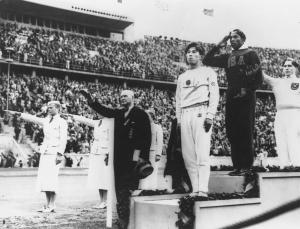The most commonly mentioned subject from news nowadays reporting the impeachment of President Park Geun-hye is what the president was doing during the 7 hours after the sinking of the Sewol ferry happened. This has been called ‘the missing 7 hours’ by the media. Many articles speculating on what happened during those hours have been written. Yet, none of them were proven fact, but rather based on circumstantial evidence and theories. One of the attributing factors which lead the situation of our government to this status is the secretive attitude of the Blue House to the president’s activities. There is a simple example compared to the current situation of Korea, right on the opposite side of the Earth. The former 44th president of the United States of America, Barack Obama was renowned for tweeting his schedule and transfer details several times per day, making good use of SNS to communicate with supporters through modern methods. Even these minor data can later become precious information to recorded history. Then, how dothe mechanisms of history and records work together?
First of all, it is necessary to explain how humans are easily deceived by records. We, descendants, always have to remember how the course of history and existing historical documents work. Its system isn’t always immediate or accurate. “The Chronicles of the Three States” was not written during its time, but in the later Goryeo Dynasty. With the very same logic, “The History of Goryeo”was also recorded after its time had ended. The Goryeo Dynasty had minute records similar to “The Annals of the Joseon Dynasty” or “The Diaries of the Royal Secretariat” of the Joseon Dynasty as well, but all of them were burned during the Japanese invasion of1592. The remaining documents about Goryeo, “The History of Goryeo” and “Goryeosajeol-yo”, were written by historians from the Joseon Dynasty. Hence, the later Joseon Dynasty emphasized the dirty gossip of the former dynasty, Goryeo, to justify the advent of the new regime itself. Thus, the most widely heard scandals of the late Goryeo, for instance, the homosexual preference of King Gong-min, or the indecisive attitude of the King Gong-yang, or the low birth of the last king, U, who reigned when the WihwadoRetreat occurred, are probably more exaggerated than real.
We have to reflect on whether what we have learned to be genuine history is actually genuine. As a lot of you probably have heard before, history is written by the winners. Based on this, some theorists argue that the same mechanism has occurred with what we have learned: starting from “The Chronicles of the Three States” written by Kim Bu-sik, a historian and a politician from the mid-Goryeo Period, the Era of the Three States (Goguryeo, Baekjae, and Silla) were emphasized while minimizing the importance of the 4th state, Garak (Gaya). In addition, from “The Chronicles of the Three States”, the superiority of the Goryeo Dynasty washighlighted, whereas the reign of the former dynasties, the Balhae in the north region and the unified Silla in the south, were disregarded. These theorists additionally assert that another historical archive from the Goryeo Period, “The Heritage of the Three States”, written by the Buddhist monk Il-yeon, laid great stress on Buddhism, the state religion of the time.
Records or historical documents are not formed right after a specific event occurs. After a quiet time, one man who may describe himself as an historian records the prior event. Although he might have faith that his works are done with the most objective point of view, every historical archive holds subjective information.
Secondly, whereas we looked through the bad cases of modified history, there must be precedents of when a historical document demonstrated its proper function to distinguish the fact from the fabricated history. There are several widely known examples, such as, the territorial controversy over the island of Dok-do between Korea and Japan, or the territorial dispute over theManju area, above the North Korea borderline, between Korea and China. Besides the noted cases above, the story about the true characteristics of Lee In-jwa and Lee Bong-sang is less well known. Lee In-jwa was the leader of the rebellion in 1728, so called Lee In-jwa‘s Revolt. Lee Bong-sang was the 6th descendant of Yi Sun-shin, a highly respected naval commander whose post was called Chung-mu-gong, which means ‘a loyal warrior’. According to the victor’s record, “The Annals of the Joseon Dynasty”, Lee Bong-sang was killed with dignity by shouting out loud three times to the crowd, “why cannot rebels hear the loyalty descending from the great Yi Sun-shin the ancestor? Come and kill me right away!” “The Diaries of Chang-ui” written by Park Gye-wu and “Seng Chong Myeong Lok” by Gu Sang-deok, however, convey the account differently, that Lee Bong-sang was killed instantly because he was fooling around with Korean gisaeng and the person who died with dignity by resisting the rebels was Lee’s superior officer, Nam Yeon-nyeon.
As we have seen that an honest record is difficult to find and believe from the cases discussed above, we can also see how important the freedom of speech and expression is. At the moment when we face a distortion of history, or are unsure whether tobelieve the written records, the emergence of novel evidence may give us a clue as to the reality of how official reports and records may be untrue. The liberty of free speech draws articles or writings from various angles, which might later transform into a valuable historical source that will guide our descendants to the truth. Therefore, regulating the media in order to govern is not the wisest judgment by the government on a long-term basis. Furthermore, building and reinforcing a capacity to sort out the genuine from trumped-up rumors is necessary to stand against the ruling class.
“There are three kinds of history. The first is what really happened and that is forever lost. The second is what most people thought happened, and we can recover that with assiduous effort. The third is what the people in power wanted the future to think happened and that is 90 percent of the history in books.”
― Michael Gruber, “The Book of Air and Shadows”
Seoh Jiwon jwseoh67@gmail.com
<저작권자 © 홍익대영자신문사, 무단 전재 및 재배포 금지>





